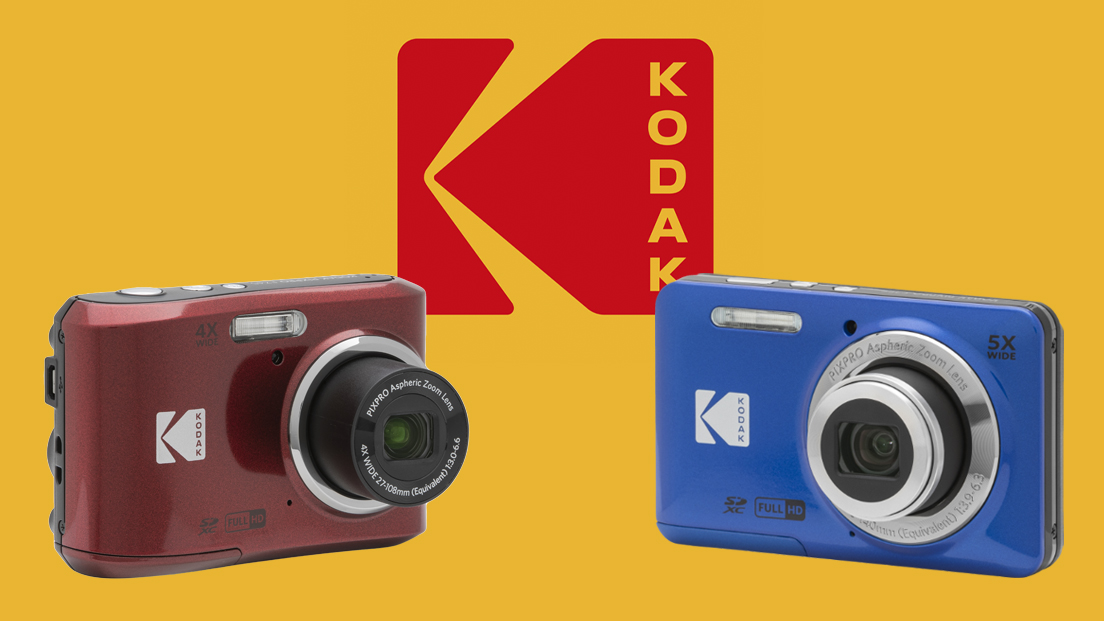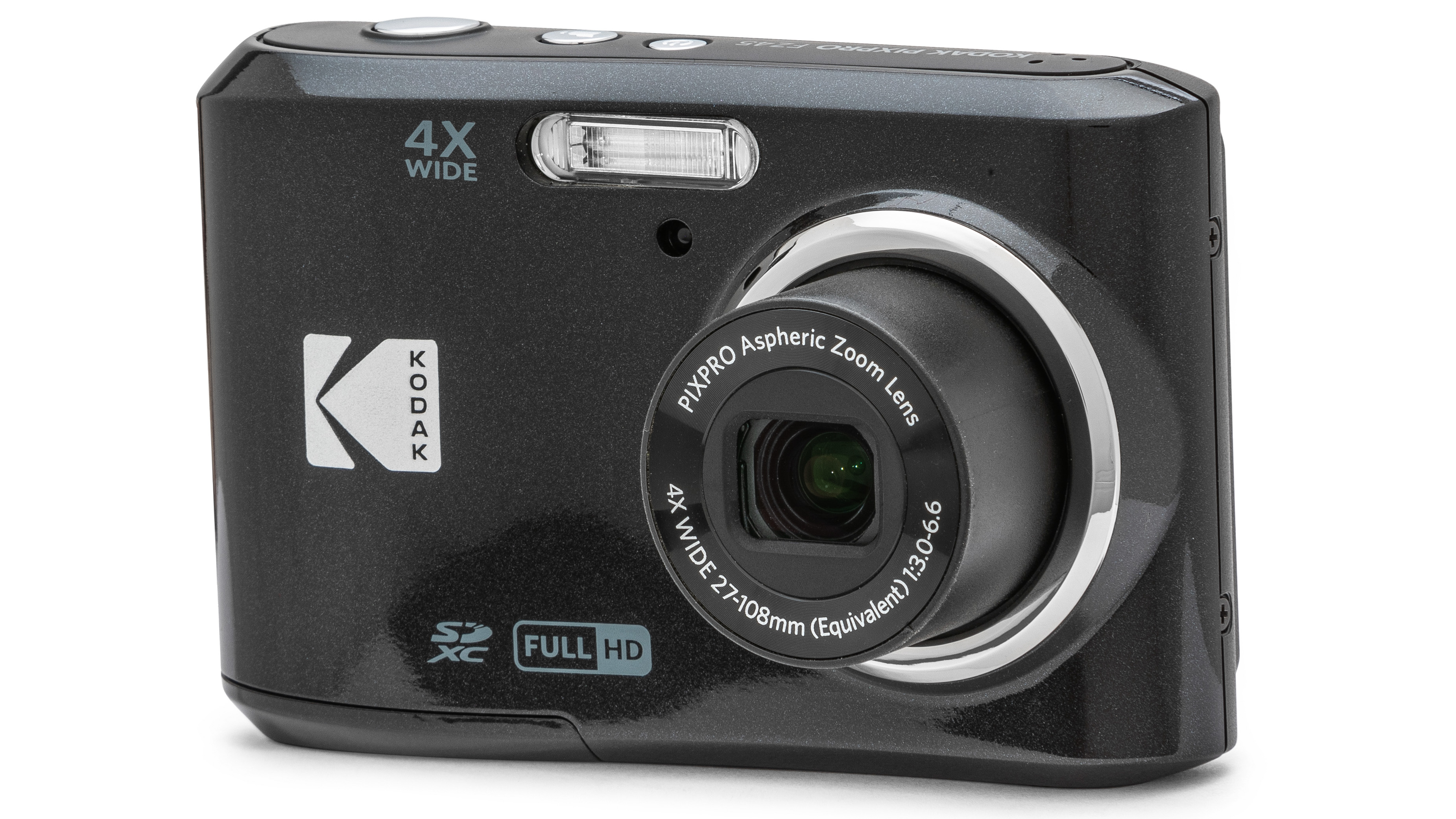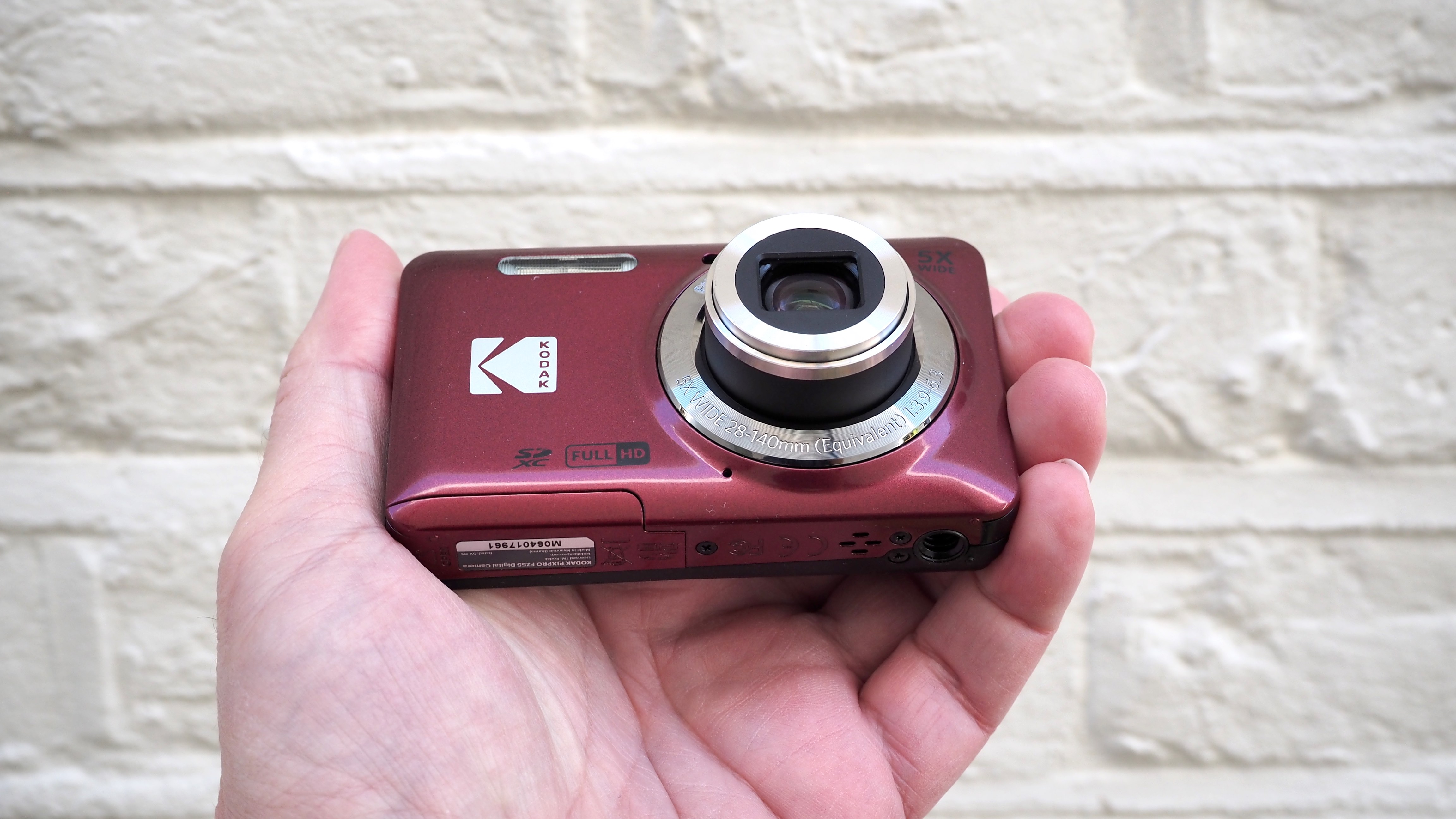
The Kodak Pixpro FZ45 and FZ55 are kicking Canon, Nikon and Sony's asses. That's not a sentence I ever thought I'd write.
How does a 16MP, $99 camera like the Kodak Pixpro FZ45 almost triple the sales of the Canon EOS R10 and Nikon Z30? How does the 1080p Pizpro FZ55 sell more than any other camera, including the 4K Sony ZV-E10 and Canon EOS R50?
First, let me catch you up in case you missed it: Kodak has toppled Canon, Nikon and Sony to become the official king of the camera industry in Japan, where it now enjoys greater market share than any of the big three.
This was thanks mainly to sales of the Kodak Pixpro FZ45 and FZ55 compact cameras, which top and tail the top three best-seller positions, along with the Kodak Pixpro WPZ2 – a waterproof camera that secured the number five spot.
So, how did these 16MP cameras costing as little as $99 topple the giants of the industry?
The answer is in those numbers.

You see, the industry has it all wrong. For years, camera manufacturers have been engaged in a megapixel arms race – 16MP sensors gave way to 24MP, then it was 47MP and 50MP, now it's 100MP.
And do you know what happened? As the pixel counts went up, camera sales went down. But what didn't go down was smartphone sales.
Sure, smartphone sales in recent years have tapered off, but they haven't collapsed the way that the camera market has. And while admittedly there are 50MP and 100MP camera phones, the market is still dominated by iPhones with 12MP sensors.
Point being, pixels don't matter. We've been trained to think they do because, as camera sales go down, the manufacturers need to sell more expensive cameras. But if pixels really mattered, three of the five best-selling cameras on the market wouldn't have 16MP sensors.
So, pixels don't matter. But you know what does? Price.

Camera geeks like us look at the Kodak Pixpro FZ45 and the first thing we see is that 16MP sensor. But there aren't enough camera geeks to sustain the market any more. And the non-camera geeks look at the Kodak Pixpro FZ45 and the first thing they see is the $99 price tag.
Pay attention to the stories about cameras flying off the shelves. It's not the 100MP monsters, not the cameras with global shutter sensors or 8K video. It's compact cameras and instant cameras and film cameras – cameras that can be bought for $99 and less.
There's an important lesson here for camera makers, many of whom have openly or quietly moved away from basic or entry level cameras. And sure, stacking high and selling cheap will only get you so far – but as we've seen, the same can be said for stacking spec sheets.
Maybe it's just a blip on the radar. Perhaps it's all just a fluke that Kodak outsold everybody. But if I'm Canon, Nikon and Sony, and I just lost my market share to a paper company that doesn't even make its own cameras any more, I'd be taking a long hard look at my business model.
Take a look at the best Kodak cameras and see how they compare to the best Canon cameras, the best Nikon cameras and the best Sony cameras.







